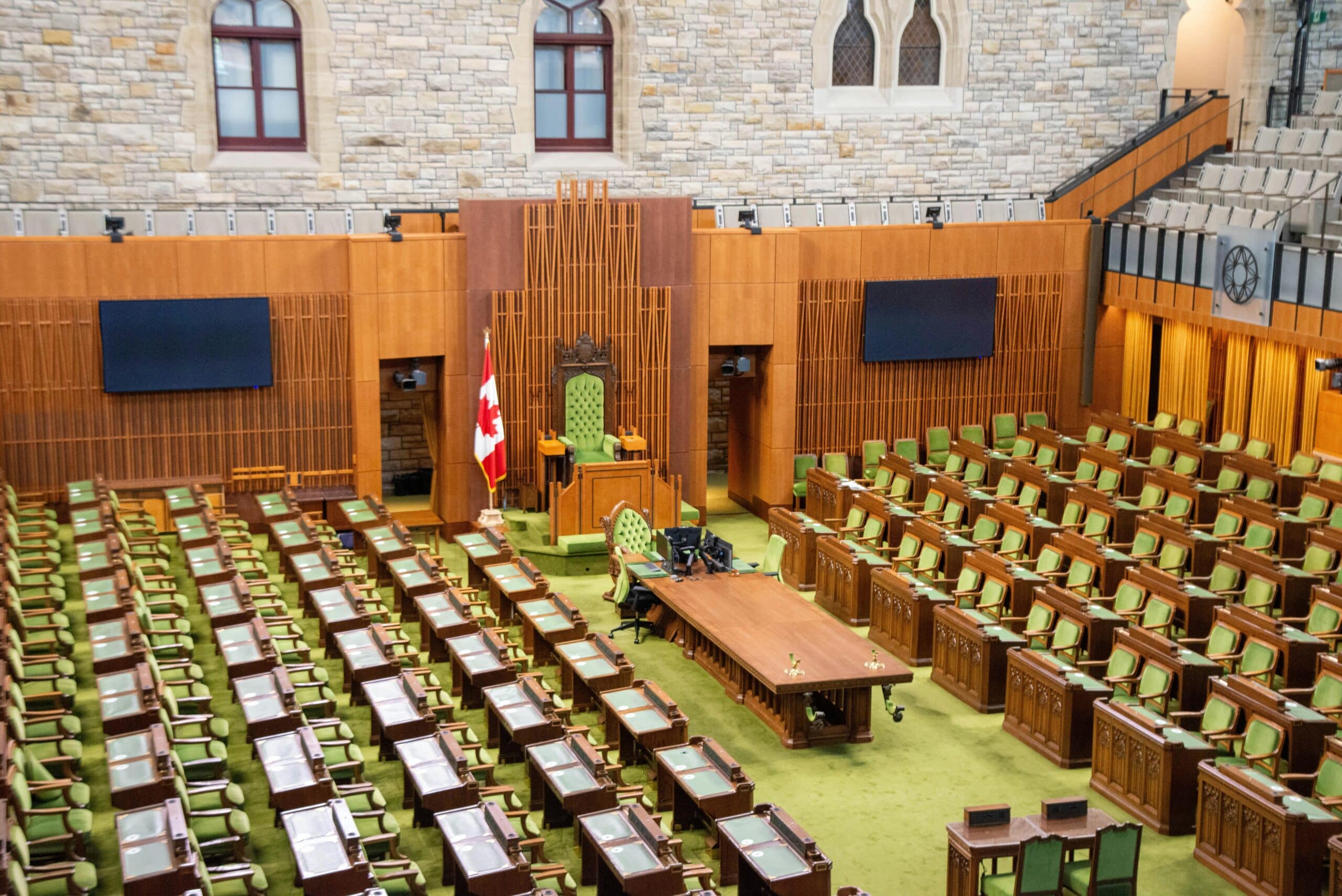The Minister of Finance and National Revenue, the Honourable François-Philippe Champagne, presented Budget 2025 on November 4, 2025. While no changes were proposed to personal or corporate tax rates, Budget 2025 introduces significant tax measures to support investment, productivity, clean growth, housing, and fairness, while also streamlining the tax system and enhancing compliance. The budget’s tax policy is closely integrated with its broader economic and fiscal strategy, aiming to build a stronger, more resilient, and more competitive Canadian economy.
Business Measures
Enhanced Scientific Research and Experimental Development (SR&ED) Program
Budget 2025 confirmed that the following proposed measures in 2024 Fall Economic Statement would proceed:
- increase the expenditure limit from $3 million to $4.5 million;
- increase the lower and upper prior-year taxable capital phase-out boundaries to $15 million and $75 million, respectively;
- restore the eligibility of SR&ED capital expenditures for both the deduction against income and investment tax credit components of the SR&ED program; and
- extend the enhanced tax credit to eligible Canadian public corporations.
Budget 2025 also proposed to further increase the expenditure limit on which the SR&ED program’s enhanced 35% tax credit can be earned, from the previously announced $4.5 million to $6 million. These measures would apply for taxation years that begin on or after December 16, 2024.
Clean Economy Tax Incentives
The clean economy is a major focus in this year’s update. Several tax credits are being expanded to attract investment in renewable energy, advanced manufacturing, and resource exploration.
- Critical Mineral Exploration Tax Credit (CMETC)
Budget 2025 proposed to expand the eligibility of the 30% CMETC to include the following additional critical minerals: bismuth, cesium, chromium, fluorspar, germanium, indium, manganese, molybdenum, niobium, tantalum, tin and tungsten. This measure would apply to expenditures renounced under eligible flow-through share agreements entered into after November 4, 2025 and on or before March 31, 2027.
- Clean Technology Manufacturing Investment Tax Credit
Budget 2025 proposed to expand the list of critical minerals eligible for the 30% clean technology manufacturing investment tax credit to include antimony, indium, gallium, germanium and scandium. This measure would apply in respect of property that is acquired and becomes available for use on or after November 4, 2025.
- Carbon Capture, Utilization and Storage (CCUS) Investment Tax Credit (ITC)
Budget 2025 proposed to extend the availability of the full credit rates by 5 years, so that the full rates apply to eligible expenditures incurred from the start of 2022 to the end of 2035, declining to the lower rates for eligible expenditures that are incurred from the start of 2036 to the end of 2040.
- Clean Electricity Investment Tax Credit (ITC) and Canada Growth Fund
Budget 2025 proposed to include the Canada Growth Fund as an entity eligible for the 15% clean electricity ITC. Budget 2025 also proposed to introduce an exception so that financing provided by the Canada Growth Fund would not reduce the cost of eligible property for the purpose of computing the clean electricity ITC available to other entities. These measures would apply to eligible property that is acquired and that becomes available for use on or after November 4, 2025.
Accelerated Capital Cost Allowance (CCA)
- Accelerated Investment Incentive (AII) Extended
Budget 2025 confirmed that the 2024 Fall Economic Statement proposal to reinstate the Accelerated Investment Incentive (AII), including accelerated first-year CCA for manufacturing or processing equipment, clean energy generation and energy conservation equipment and zero-emission vehicles, would proceed. the proposal would restore the enhanced first-year CCA claims that had started to phase out for assets acquired in 2024, ensuring that the full incentives would apply to assets acquired in the calendar years 2025 to 2029. The existing scheduled phaseout from 2024 to 2027 would instead occur from 2030 to 2034.
- Immediate Expensing for Manufacturing and Processing Buildings
Budget 2025 proposed to provide immediate 100% CCA expensing of the cost of eligible manufacturing or processing buildings, including eligible additions or alterations made to such buildings, provided the minimum 90% floor space requirement is met. This measure would be effective for eligible property that is acquired on or after November 4, 2025 and is first used for manufacturing or processing before 2030.
- Reinstatement of Accelerated CCA for Low-Carbon Liquefied Natural Gas Facilities
Budget 2025 proposed reinstating accelerated CCAs for liquefied natural gas (LNG) equipment and related buildings, but only for low-carbon LNG facilities. These measures would apply to property acquired on or after November 4, 2025 and before 2035.
- Productivity-Enhancing Assets
Budget 2025 confirmed that a Budget 2024 proposal to provide immediate 100% CCA expensing of the cost of property acquired on or after April 16, 2024 that becomes available for use before January 1, 2027 will proceed. Assets include patents or the rights to use patented information for a limited or unlimited period, data network infrastructure equipment and related systems software, and general-purpose electronic data-processing equipment, such as computers and systems software.
Tiered Corporate Structures & Dividend Refund
A corporation is generally not subject to income tax on a taxable dividend received from a connected corporation, except to the extent that the corporation paying the dividend (Payerco) received a dividend refund. In those cases, the corporate shareholder (Receiveco) is subject to a tax equal to the dividend refund received by Payerco, multiplied by Receiveco’s portion of the total dividends paid by Payerco. In the past, there were tax planning techniques employed to take advantage of a timing difference where Payerco and Receiveco have different year-ends.
Budget 2025 proposed to limit the deferral of tax in corporate structures with mismatched year-ends. In general terms, the proposed limitation would suspend Payerco’s dividend refund on the payment of a taxable dividend to Receiveco where two conditions are met.
- The suspension would apply only if Receiveco and Payerco are affiliated corporations.
- The suspension would apply only if a tax deferral such as the one described in the example above will otherwise be achieved.
This measure would apply to taxation years that begin on or after November 4, 2025.
The proposed new rules are complex. A detailed review of the structure of corporate groups will be required to determine situations where dividend refunds will be delayed, and to assess any changes in historical dividend strategies to minimize the impact of this proposal.
Other Business Measures
- Classification between Employees and Independent Contractor
The government is concerned that the deliberate misclassification of employees as independent contractors means that employers are not withholding and remitting the proper amounts of income tax, CPP and EI contributions. Budget 2025 proposed to provide $77 million over 4 years starting in 2026-27 for CRA to implement a program that addresses non-compliance related to personal services businesses, as well as to lift the moratorium on reporting fees for services in the trucking industry. Additionally, it proposed to allow CRA to share information with the Department of Employment and Social Development Canada for the purpose of addressing worker misclassification.
- Patronage Dividends Paid in Shares
Budget 2025 proposed to extend temporary deferral of income taxes and withholding obligations on patronage dividends received from agricultural cooperatives by their members in the form of eligible shares until the disposition (including a deemed disposition) of the shares before the end of 2030, i.e. a five-year extension.
- Non-profit Organizations’ (NPO) Reporting Obligations
The Government stated that it intends to proceed with proposed expansions to the existing reporting requirements for NPOs by requiring basic filings for smaller NPOs not otherwise required to file and adding regular filing requirements for entities with receipts over $50,000. However, this would be deferred to apply for taxation years beginning on or after January 1, 2027 rather than commencing for 2026.
Personal Measures
Automatic Federal Benefits for Lower-Income Individuals
Budget 2025 proposed to grant the Canada Revenue Agency (CRA) the discretionary authority to automatically file returns for eligible low-income Canadians whose financial information is already on record. The goal is to ensure that people who might otherwise miss out on benefits, such as the GST/HST credit and the Canada Workers Benefit, receive them without needing to file on their own. This measure would apply to the 2025 and subsequent taxation years. This proposal is open for consultation until January 30, 2026. Once processed, the individual generally has 90 days to review the information and submit changes to the CRA. Individuals may also opt-out of automatic tax filing.
Temporary Personal Support Workers Tax Credit
Budget 2025 proposed to provide eligible personal support workers working for eligible health care establishments with a refundable tax credit of 5% of eligible earnings (providing a credit of up to $1,100). Amounts earned in British Columbia, Newfoundland and Labrador and the Northwest Territories would not be eligible. Certain conditions need to be met in order to claim this credit, and individuals would need to file a tax return to be eligible. This measure would apply to the 2026 to 2030 taxation years.
Middle Class Tax Cut & Top-Up Tax Credit
The lowest marginal personal tax rate is being reduced to 14.5% for the 2025 taxation year, and to 14% for the 2026 and subsequent taxation years. This rate is also applied to most non-refundable tax credits. In very rare cases where an individual’s non-refundable tax credit amounts exceed the first income tax bracket threshold ($57,375 in 2025), the decrease in the value of these credits may exceed their tax savings from the rate reduction.
Budget 2025 proposed to introduce a new non-refundable top-up tax credit, which would effectively maintain the current 15% rate for non-refundable tax credits claimed on amounts in excess of the first income tax bracket threshold. The top-up tax credit would apply for the 2025 to 2030 taxation years.
Qualified Investments for Registered Plans – Small Businesses
Budget 2025 proposed to simplify and streamline the rules relating to registered plan investments in small businesses, while maintaining the ability of registered plans to make such investments.
The following amendments would apply as of January 1, 2027.
- RDSPs would be allowed to acquire shares of specified small business corporations, venture capital corporations and specified cooperative corporations just as RRSPs, RRIFs, TFSAs, RESPs and FHSAs.
- Shares of eligible corporations and interests in small business investment limited partnerships and small business investment trusts would no longer be qualified investments.
Bare trust reporting rules
Budget 2025 confirmed that the government intends to proceed with the August 15, 2025 proposals, subject to further modifications for consultations and deliberations since their release. However, the application date for reporting by bare trusts would be deferred to apply to taxation years ending on or after December 31, 2026, and not require such filings for the 2025 taxation year.
Trusts and the 21-year rule
Trusts are generally deemed to have disposed of their property for fair market value proceeds on the 21st anniversary of their creation, and every 21st anniversary thereafter (the “21-year rule”). Where property is transferred by a trust on a tax-deferred basis to a new trust, a rule prevents the avoidance of the 21-year rule. Budget 2025 proposed to broaden the current anti-avoidance rule for direct trust-to-trust transfers to include indirect transfers of trust property to other trusts. This measure would apply in respect of transfers of property that occur on or after November 4, 2025
Other Personal Measures
- Home Accessibility Tax Credit Modification
Budget 2025 proposed that expense claimed under the medical expense tax credit will not be allowed to be claimed under the home accessibility tax credit. This measure applies to the 2026 and subsequent taxation years.
- Canada Carbon Rebate Wind-up
With the removal of the program as of April 1, 2025, Budget 2025 proposed to provide that no payments would be made in respect of tax returns, or adjustment requests, filed after October 30, 2026.
- One-time Supplemental Canada Disability Benefit
Budget 2025 proposed to provide this one-time benefit payment of $150 in respect of each disability tax credit certification, or re-certification, giving rise to a Canada disability benefit entitlement. The first supplemental payments are expected to be made to recipients before the end of 2026-27
International Tax Measures – Transfer Pricing
Budget 2025 proposed to modernize Canada’s transfer pricing rules to better align with the international consensus on the application of the arm’s length principle. In addition, an interpretation rule would be added to ensure that Canada’s transfer pricing rules are applied in a manner consistent with the analytic framework set out by the Organization for Economic Co-operation and Development (OECD) Transfer Pricing Guidelines.
The budget also highlighted the following administrative measures:
- The budget increases the threshold for application of transfer pricing penalty to a $10 million assessment from a $5 million assessment.
- The budget clarifies documentation requirements to more closely align with the new definitions and requirements and introduces new simplified documentation requirements.
- The budget allows simplified documentation where certain requirements are met.
- The budget reduces time period to provide documentation from 3 months to 30 days.
These measures would apply to taxation years that begin on or after November 4, 2025.
Sales and Excise Measures
Underused Housing Tax (UHT)
Budget 2025 proposed to eliminate the UHT (which first took effect on January 1, 2022) as of the 2025 calendar year. No UHT would be payable and no UHT returns would be required in respect of the 2025 and subsequent calendar years.
Luxury Tax on Aircraft and Vessels
Budget 2025 proposed to end the luxury tax on subject aircraft and subject vessels. All instances of the tax would cease to be payable after November 4, 2025. Registered vendors in respect of these items would be required to file a final return. The tax would remain applicable to vehicles (such as cars and SUVs) with a value above $100,000.
Carousel GST/HST Frauds
Budget 2025 announces changes to help prevent carousel fraud in which GST/HST is collected in respect of a supply of property or services but is not remitted to the government. Specifically, the government is proposing to introduce a new self-assess and report mechanism beginning with certain supplies in the telecommunications sector.
Manual Osteopathic Services
Budget 2025 proposed to clarify that osteopathic services rendered by individuals who are not osteopathic physicians are taxable under the GST/HST regime. This measure would apply to supplies made after June 5, 2025. However, it would not apply to a supply of osteopathic services made from June 6, 2025 to November 4, 2025 if the supplier did not charge, collect or remit any amount as or on account of tax in respect of the supply.
Previously Announced Measures
Budget 2025 confirmed the government’s intention to proceed various previously announced tax and related measures, as modified to consider consultations, deliberations and legislative developments, since their release
- Capital gains rollover on small business investments;
- Crypto-asset reporting framework and the common reporting standard (subject to a deferred application date of January 1, 2027);
- Tax exemption for sales to employee ownership trusts;
- Tax exemption for sales to worker cooperatives;
- Excessive interest and financing expenses limitation rules;
- Substantive CCPCs;
- Goods and services tax/harmonized sales tax (GST/HST) rules for the redemption of coupons;
- Lifetime capital gains exemption changes
- Alternative Minimum Tax
We are Here to Help
As always, Federal budgets bring both challenges and opportunities for individuals and businesses. At Zeifmans, we help our clients with everything from planning, risk management to tax minimization. If you would like to explore more about the 2025 federal budget and how you may be affected, please consult your Zeifmans advisor or connect with our team today at info@zeifmans.ca.



